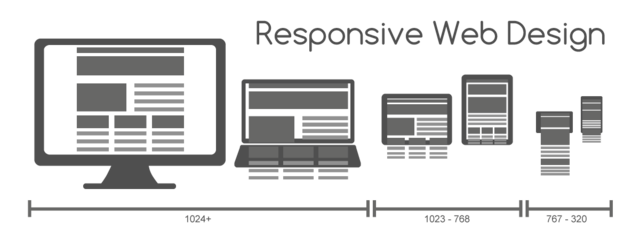A website as an effective business platform: what to look for and how to avoid unnecessary experiments

A website is a marketing tool that has its own payback period and brings profit to the owner. Any site works on this principle, whether it is an online store or an information platform. The only exceptions are resources that are created incorrectly.
What can go wrong?

The site should be user-friendly, without overloaded design, understandable to users and load quickly. But even if the resource meets all these criteria, this does not guarantee profitability. A business goal cannot be achieved if:
- The development was carried out superficially, without voluminous technical specifications and without full immersion in business processes.
- The site is filled with banal content and cannot serve as a presentation platform.
- The integration of the business and the site has not been completed, that is, it will be difficult to use the web platform in an automated sales funnel.
- Instead of research, they are engaged in design, that is, they make the visual part a priority, not the content. A similar "failed" effect will be obtained if each stage is coordinated with non-professionals who are not directly related to the development of the site.
- Evaluate costs only as a subjective “expensive”, but do not evaluate them as investments that will pay for themselves over time and bring even more profit.
- Rush things and launch a site with incompletely prepared content. In general, saving on content is a bad idea.
For example, for most sites that provide sales, it is important that there is not only an application form, but also a call back, as well as a working online consultant to resolve quick questions. A well-developed and logical structure is of great importance. And the content should reflect all issues from the sphere of interests of your potential buyers (yes, you need to know all the subtleties of the preferences and behavior of the target audience even before creating the site).
In order to ensure full integration into the process of creating a site and web studio specialists, and the business owner, you can not limit yourself to only one stage of negotiations. Only after the work has been jointly carried out to study the structure of the business and the target audience, the terms of reference for the development are drawn up. Each stage is planned, so that later, already in the process, not to make changes. This is the only way to provide a really working website for solving business problems.
It should be

The right website development strategy contains 11 stages, and each of them is important. Here are the most important nuances that a business owner should know before ordering a website:
- Preparation . The very first step is to determine the need for a site. Any business owner who wants to make a profit on the Internet must understand that the site is not static, it will have to be modified, modernized, maintained in the TOP so that it always corresponds to modern realities.
- Choice of a contractor . Reviews and real work are equally important - you can evaluate the qualifications of a web studio only in the aggregate.
- Choosing a marketing strategy for promotion on the Internet . This is a large and lengthy stage, involving a comprehensive study of the company's business model, the work of the offline marketing department, as well as the process between placing an order and fulfilling it. It is also necessary to evaluate the existing statistics on advertising campaigns carried out: which of them were the most successful and brought more customers. Another nuance is the assessment of the competitiveness of the niche and the companies that are already working in it. Here it is important to determine the uniqueness of your business, understand the target audience, determine the direction of investment. At the same stage, a forecast of payback from investments in the development of the site is made.
- Analysis and definition of targeted traffic on various grounds.
 You should segment the audience by age, income level, and other criteria that correspond to the realities of your business. You will also need to collect organic traffic, that is, all requests that are somehow related to the subject of your business. In addition, you will need to study what type of traffic your direct competitors are attracting.
You should segment the audience by age, income level, and other criteria that correspond to the realities of your business. You will also need to collect organic traffic, that is, all requests that are somehow related to the subject of your business. In addition, you will need to study what type of traffic your direct competitors are attracting. - Creation of site structure . You should not focus on "banal" examples or patterns. When creating a structure, audience segmentation, market analysis, ready-made cases of your company, types of services or goods offered, which can be divided into categories, questions that the target audience has regarding goods or offers, are taken into account. All requests by topic are necessarily included in the structure, and each should have its own landing page or a whole section (for example, the “metal-plastic windows” section is divided into “profile”, “glass units” and “fittings”, if we are talking about the manufacturer's website). If you make a full-fledged landing page for each product, fill it with benefits, numbers, abstracts understandable to the target audience, and real cases, then you will get an amazing competitive advantage.
- A compelling and engaging site .
 This means that it should have modules that help customers make a decision. These are all kinds of calculators for online calculations and programs for filtering goods by characteristics. The structure of the site should follow the path of the client when making a purchase. When creating individual elements of the catalog, you must also take into account the degree of consumer awareness of the range and capabilities of your products.
This means that it should have modules that help customers make a decision. These are all kinds of calculators for online calculations and programs for filtering goods by characteristics. The structure of the site should follow the path of the client when making a purchase. When creating individual elements of the catalog, you must also take into account the degree of consumer awareness of the range and capabilities of your products. - Accounting for typical tasks for each of the segments of your target audience. For example, you can offer ready-made sets of equipment for a specific problem or a whole range of services that solve a client's problem.
- Catalogs and a client's personal account should be in any case - both if you sell goods directly from the site, and if you work only with intermediaries, dealers or franchisees. A personal account allows your customers to stay in touch, regardless of the level and number of their purchases.
- Adaptability for mobile devices .
 Today, smartphone users are increasingly buying on the Internet, and such a solvent audience should not be missed. Even if you sell frame houses or metal garages, the site should still open normally on smartphones and tablets. In fact, now there are no niches left for which the requirement of mobile adaptability may not be relevant.
Today, smartphone users are increasingly buying on the Internet, and such a solvent audience should not be missed. Even if you sell frame houses or metal garages, the site should still open normally on smartphones and tablets. In fact, now there are no niches left for which the requirement of mobile adaptability may not be relevant. - Relationship between sales and analytics . Everything your customers buy online should be tracked. Well-tuned analytics and regular reporting is a way to track the payback of the site and calculate the costs of running such a business.
- The site requires support , regular and monthly. It is better to conclude a service contract so that the specialists who were involved in the development make operational and planned changes to the functionality.
Timely support of a properly created site will allow your business to always remain successful.
